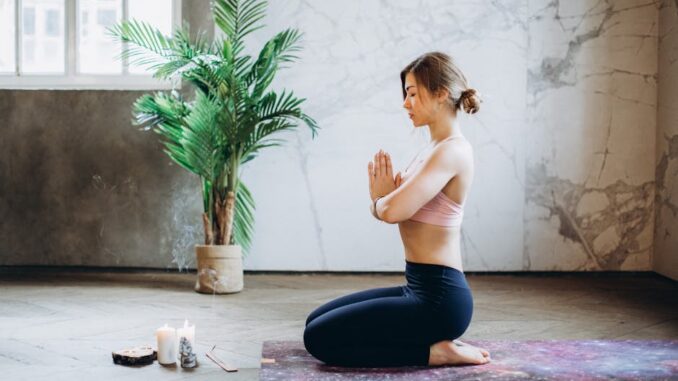
Summary
This article explores ten relaxation techniques to help individuals navigate the challenges of addiction recovery. From deep breathing and mindfulness to yoga and creative expression, these techniques offer practical strategies for managing stress, reducing cravings, and fostering emotional well-being. By incorporating these techniques into their daily routines, individuals can cultivate resilience, enhance their recovery journey, and build a foundation for long-term sobriety.
** Main Story**
Okay, let’s talk about recovery. It’s no secret addiction recovery is tough, right? And learning to chill out is honestly a game-changer. Stress? Yeah, that’s often a one-way ticket back to square one; those cravings can be brutal. But, good news, there are tons of ways to manage stress, boost your well-being, and build a solid foundation for staying sober. So, here are ten things you can slip into your daily life.
Breathing Exercises: Your Secret Weapon
Seriously, don’t underestimate breathing. Deep, focused breaths? That’s like hitting the ‘reset’ button on your body’s stress response. Think of it like this: your body has a built-in stress system, and deep breathing is the off switch.
Box breathing is one I find really useful:
- Inhale for four seconds.
- Hold for four seconds.
- Exhale for four seconds.
- Hold for four seconds.
Just keep going for a few minutes, and pay attention to how much calmer you feel. And there’s also diaphragmatic breathing, or belly breathing, that can be just as good. Find what works best for you, because it’s all about what helps you find calm.
Mindfulness and Meditation: Being Here, Now
Mindfulness is just about being aware of the moment, without judging it. Seems simple, but it can be powerful. You can go full-on meditation, which is great, but you can also just try to be more mindful during your day – when you’re walking, eating, whatever. It’s all about getting better at knowing yourself, controlling your feelings, and yeah, cutting down on stress. There’s no shortage of apps and online resources to help guide you through meditations, so if you’re unsure, start there!
Yoga and Easy Exercise: Moving and Grooving (Gently)
Yoga, with its poses, breathing, and meditation, is awesome for both your body and mind. I like Tai chi, or even just going for a walk, same deal. When you move, your body releases endorphins; natural mood boosters that wash away stress and make you feel better.
Creative Expression: Unleash Your Inner Artist
Painting, drawing, writing, playing music…it’s all good. These activities let you vent your feelings in a healthy way and help you to destress. It’s great for figuring yourself out, improving your self-worth, and feeling like you’ve accomplished something.
Progressive Muscle Relaxation: Tense and Release
Basically, you tense up different muscle groups, then release them. It’s a great way to become more aware of your body, reduce muscle tension, and just…relax. Start with your toes, work your way up, and really notice the difference between when you’re tense and when you’re not.
Nature: Go Outside!
Seriously, spending time in nature is one of the best things you can do. Use your senses. What do you see? What do you hear? Just enjoy the fresh air. Nature is calming, it lowers stress, and it helps you relax. You’ll feel so much better for it, trust me.
I remember one time, I was feeling totally overwhelmed, and I just went for a walk in the woods. By the time I came back, I felt like a different person.
Journaling: Get It Out of Your Head
Writing down what you’re thinking and feeling can be a huge help. It lets you process emotions, identify triggers, and see how far you’ve come. It’s a safe space to be yourself, no judgment, and it helps you understand yourself better.
Music: Tune In, Chill Out
Music can really change your mood. Listening to calming stuff, like classical, ambient, or nature sounds, helps you relax, cuts down on stress, and creates a peaceful vibe. What’s not to love?
Loved Ones: Connect and Recharge
Being around people who care about you is super important, especially when you’re recovering. It makes you feel like you belong, reduces stress, and strengthens the people you can lean on.
Professional Support: Don’t Go It Alone
Therapy provides a space to dig into the reasons why you’re struggling, build better coping strategies, and work through the challenges of recovery. A therapist can offer tailored advice, support, and proven methods to make your recovery easier.
So, if you add these relaxation methods to your daily life, you’ll find it easier to manage stress, resist cravings, and build emotional strength. Remember, though, recovery is a process, not a destination, so be patient with yourself, acknowledge your progress, and appreciate the power of relaxation. You got this.


Be the first to comment